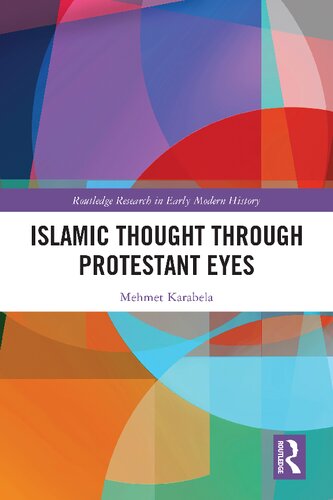

Most ebook files are in PDF format, so you can easily read them using various software such as Foxit Reader or directly on the Google Chrome browser.
Some ebook files are released by publishers in other formats such as .awz, .mobi, .epub, .fb2, etc. You may need to install specific software to read these formats on mobile/PC, such as Calibre.
Please read the tutorial at this link: https://ebookbell.com/faq
We offer FREE conversion to the popular formats you request; however, this may take some time. Therefore, right after payment, please email us, and we will try to provide the service as quickly as possible.
For some exceptional file formats or broken links (if any), please refrain from opening any disputes. Instead, email us first, and we will try to assist within a maximum of 6 hours.
EbookBell Team

5.0
50 reviewsEarly modern Protestant scholars closely engaged with Islamic thought in more ways than is usually recognized. Among Protestants, Lutheran scholars distinguished themselves as the most invested in the study of Islam and Muslim culture. Mehmet Karabela brings the neglected voices of post-Reformation theologians, primarily German Lutherans, into focus and reveals their rigorous engagement with Islamic thought. Inspired by a global history approach to religious thought, Islamic Thought Through Protestant Eyes offers new sources to broaden the conventional interpretation of the Reformation beyond a solely European Christian phenomenon.
Based on previously unstudied dissertations, disputations, and academic works written in Latin in the seventeenth and eighteenth centuries, Karabela analyzes three themes: Islam as theology and religion; Islamic philosophy and liberal arts; and Muslim sects (Sunni and Shi‘a). This book provides analyses and translations of the Latin texts as well as brief biographies of the authors.
These texts offer insight into the Protestant perception of Islamic thought for scholars of religious studies and Islamic studies as well as for general readers. Examining the influence of Islamic thought on the construction of the Protestant identity after the Reformation helps us to understand the role of Islam in the evolution of Christianity.